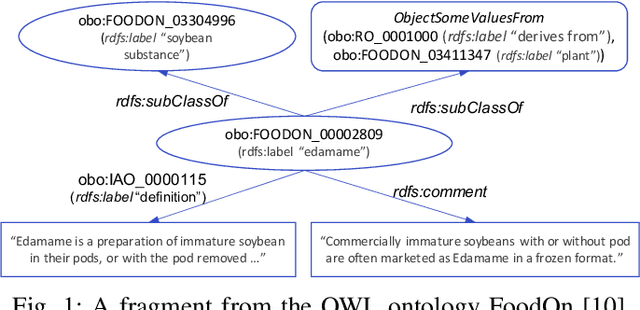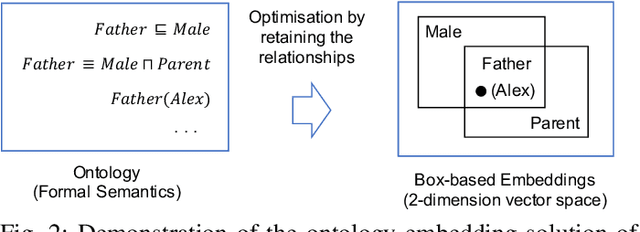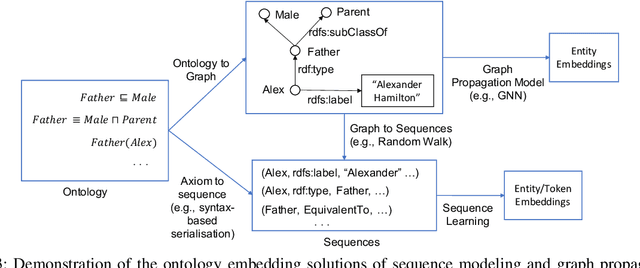Ontology Embedding: A Survey of Methods, Applications and Resources
Paper and Code
Jun 16, 2024



Ontologies are widely used for representing domain knowledge and meta data, playing an increasingly important role in Information Systems, the Semantic Web, Bioinformatics and many other domains. However, logical reasoning that ontologies can directly support are quite limited in learning, approximation and prediction. One straightforward solution is to integrate statistical analysis and machine learning. To this end, automatically learning vector representation for knowledge of an ontology i.e., ontology embedding has been widely investigated in recent years. Numerous papers have been published on ontology embedding, but a lack of systematic reviews hinders researchers from gaining a comprehensive understanding of this field. To bridge this gap, we write this survey paper, which first introduces different kinds of semantics of ontologies, and formally defines ontology embedding from the perspectives of both mathematics and machine learning, as well as its property of faithfulness. Based on this, it systematically categorises and analyses a relatively complete set of over 80 papers, according to the ontologies and semantics that they aim at, and their technical solutions including geometric modeling, sequence modeling and graph propagation. This survey also introduces the applications of ontology embedding in ontology engineering, machine learning augmentation and life sciences, presents a new library mOWL, and discusses the challenges and future directions.
 Add to Chrome
Add to Chrome Add to Firefox
Add to Firefox Add to Edge
Add to Edge